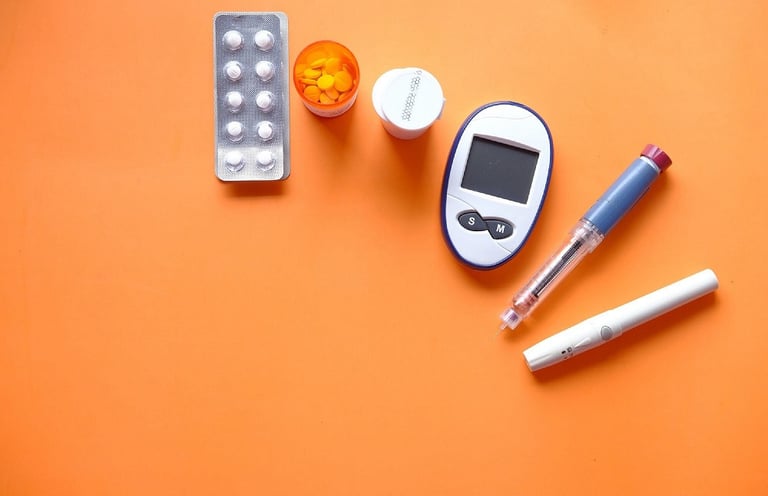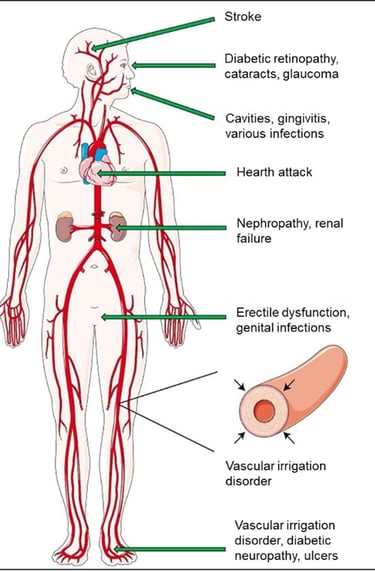How to manage diabetes?


The diabetic person (type II diabetes) has entered the vicious circle of hyperglycemia and related oxidative stress,
which promote glycation of the body's proteins. This leads to dysfunction of the pancreas cells, which no longer produce enough insulin to lower blood sugar levels. This phenomenon may have been induced by excessive ingestion of high-GI sugars, leading to insulin resistance, which may also have been encouraged by too much circulating fat. It may also have been induced by the state of permanent inflammation that obesity represents.
Diabetes often manifests itself as excessive thirst and the need to urinate, as the body seeks to eliminate sugar through the urine. It leads to accelerated general aging, cardiovascular and other problems, and is a risk factor for degenerative diseases:
Diabetes & Nutrition, www.diabetnutrition.ch
The classic treatment is metformin. In this case, it’s essential to also take vitamin B12, as it causes a deficiency in this vitamin.
However, I recommend a different approach to taking metformin. First of all, you should know that fasting can, in a number of cases, restore insulin synthesis and sensitivity, and thus cure type II diabetes. It's well worth a try, with the support of a nutrittional therapist. You can also adapt your diet, once again towards a natural and diversified diet, also trying:
Moderation of glycemic indexes, to reduce insulin over-mobilization. GI can be further reduced by consuming cider vinegar or lemon juice with meals (2 teaspoons).
Increased intake of magnesium and vitamin D, which reduce insulin resistance, and zinc, which stimulates the action of insulin receptors.
Consumption of cinnamon, which increases insulin sensitivity. Take half a teaspoon a day, i.e., 2 ml or 1 g (no more, as the coumarin in cinnamon is toxic in higher doses).
Berberine may also be considered to increase insulin sensitivity. Take 500 mg 2 to 3x/day. An alternative is alpha-lipoic acid, which also increases insulin sensitivity. In addition, it stimulates satiety and is an antioxidant that fights adipocyte inflammation. Take 300 mg 3x/day.
In addition to dietary adaptation, I recommend:
Physical exercise, which increases insulin sensitivity.
Avoidance of chronic sleep deprivation, as it increases insulin resistance.
To find out more, also read these articles:
About fasting: https://isabellemaesnutrition.com/en/fasting
On obesity: https://isabellemaesnutrition.com/en/obesity
On the mechanisms involved in weight gain: https://isabellemaesnutrition.com/en/weightgain
On the issues of industrial foods compared to a natural diet: https://isabellemaesnutrition.com/en/processed-foods
On the concept of glycemic index, its role and how to modulate it: https://isabellemaesnutrition.com/en/glycemic-index
On how to broaden the range of foods that have a place in a healthy diet: https://isabellemaesnutrition.com/en/forgotten-foods
Treatments picture by Towfiqu barbhuiya


